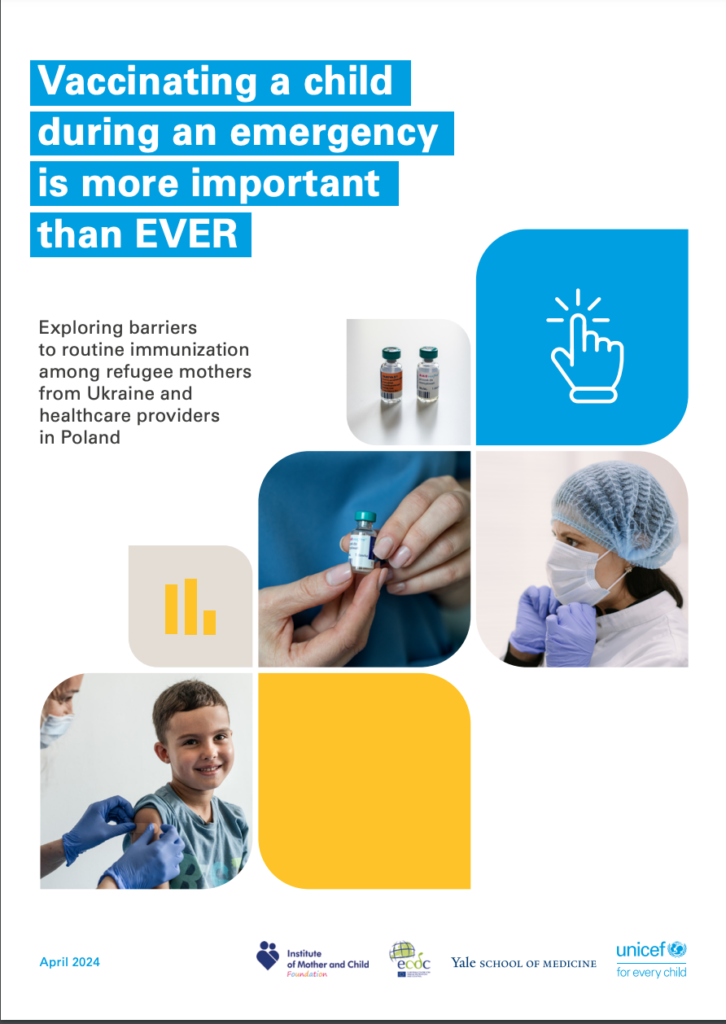Since February 2022, Poland has hosted over 1.6 million refugees from Ukraine, primarily women and children fleeing the ongoing conflict. This mass displacement has posed significant public health challenges, particularly in maintaining routine immunization among refugee children. Historically low vaccination rates in Ukraine, compounded by logistical, linguistic, and cultural barriers in Poland, have heightened the risk of vaccine-preventable diseases within this vulnerable population.
In response, UNICEF, in collaboration with the Institute of Mother and Child Foundation, Yale School of Medicine, and the European Centre for Disease Prevention and Control (ECDC), conducted a comprehensive study to explore barriers to routine immunization for Ukrainian refugee families. The study employed a mixed-methods approach, integrating Key Informant Interviews (KIIs), Focus Group Discussions (FGDs), and randomized controlled experiments to understand the drivers of vaccination behavior.
Triangle played a pivotal role as a research partner, contributing expertise in behavioral analysis and operationalizing the Behavioral and Social Drivers of Vaccination (BeSD) framework. The findings revealed critical barriers, including language gaps, misinformation, and logistical hurdles, alongside enablers like high trust in healthcare providers. Recommendations emphasized the need for bilingual communication, culturally sensitive health campaigns, and streamlined access to vaccination services to enhance immunization uptake among refugee children.
